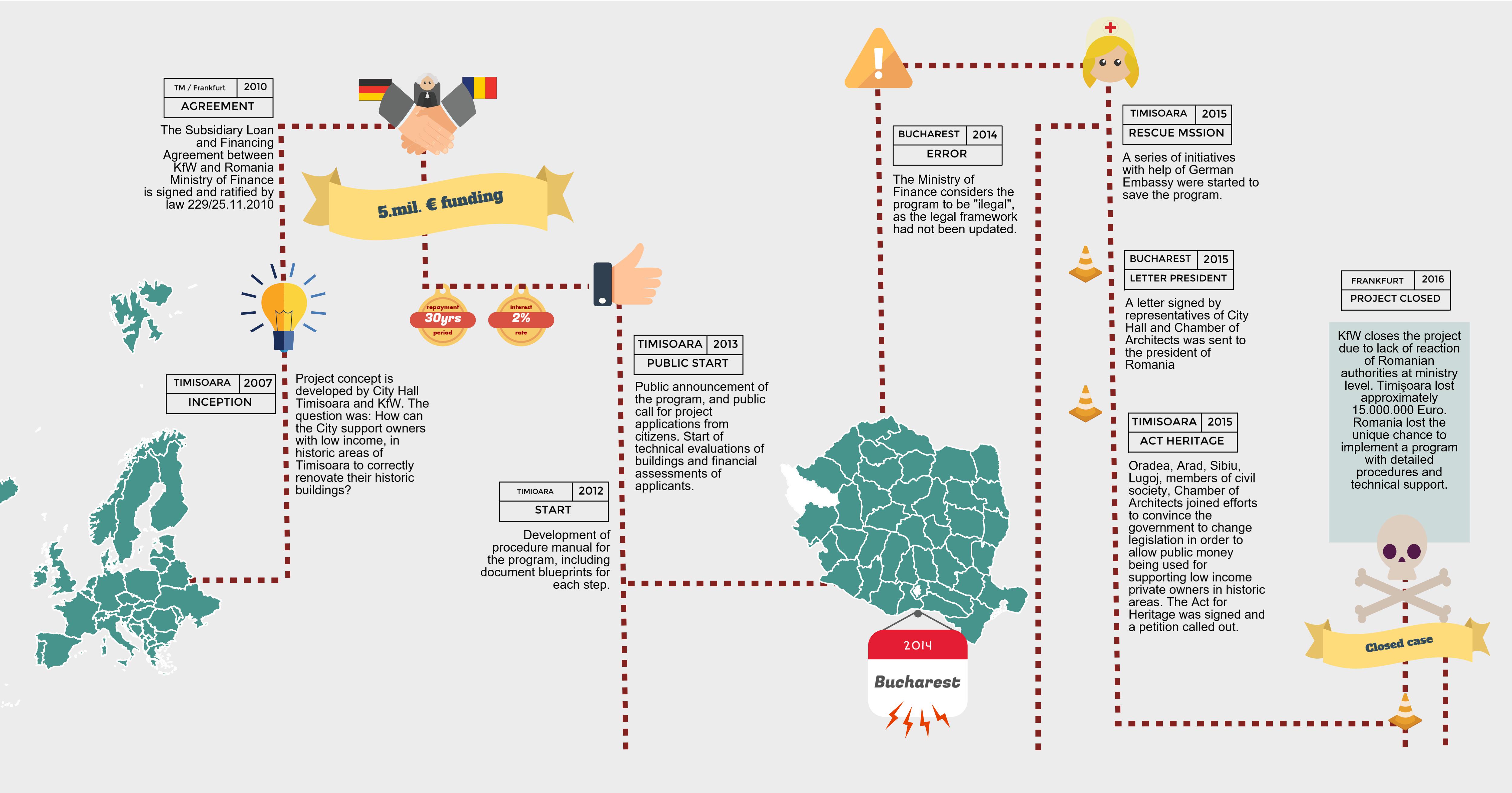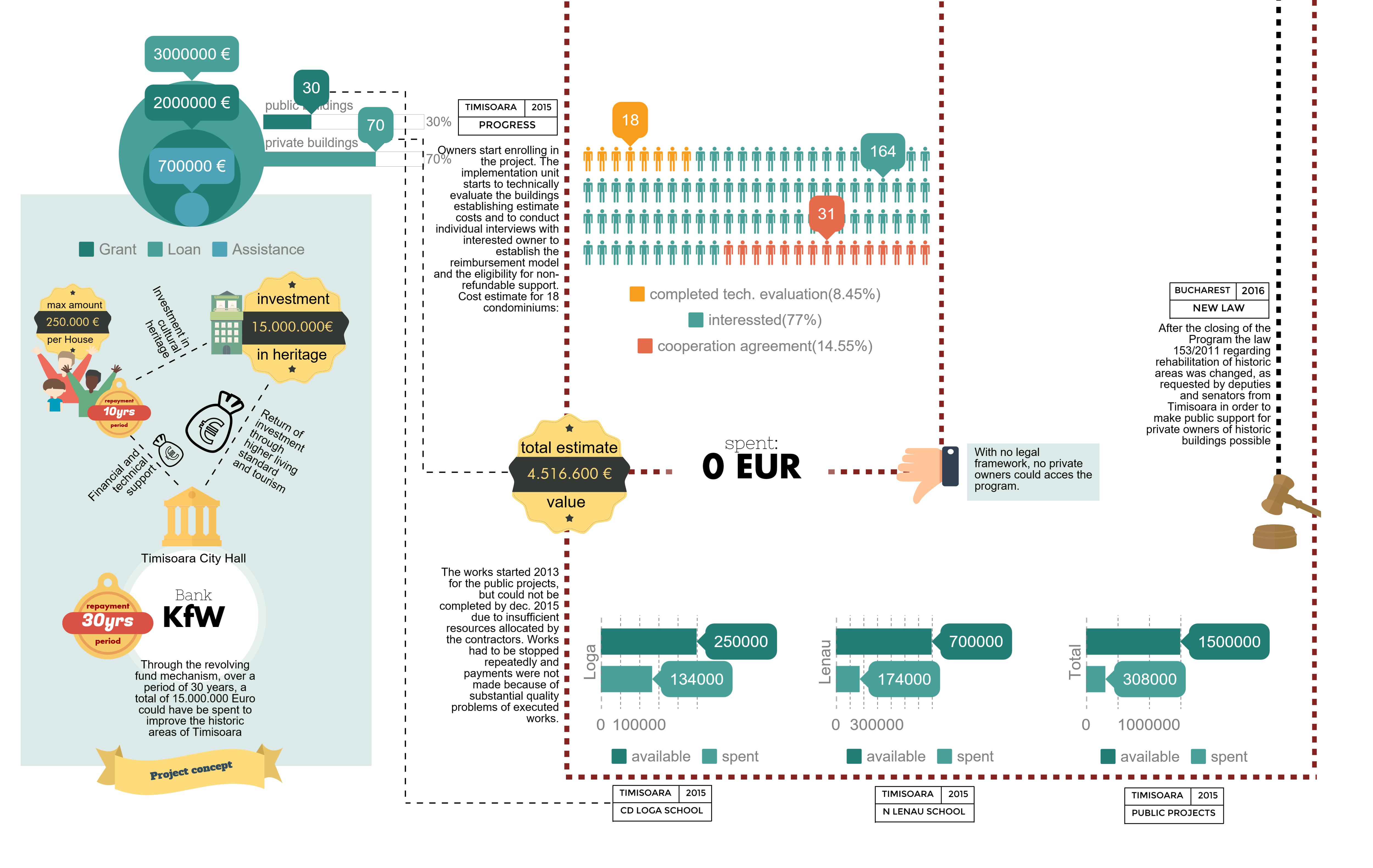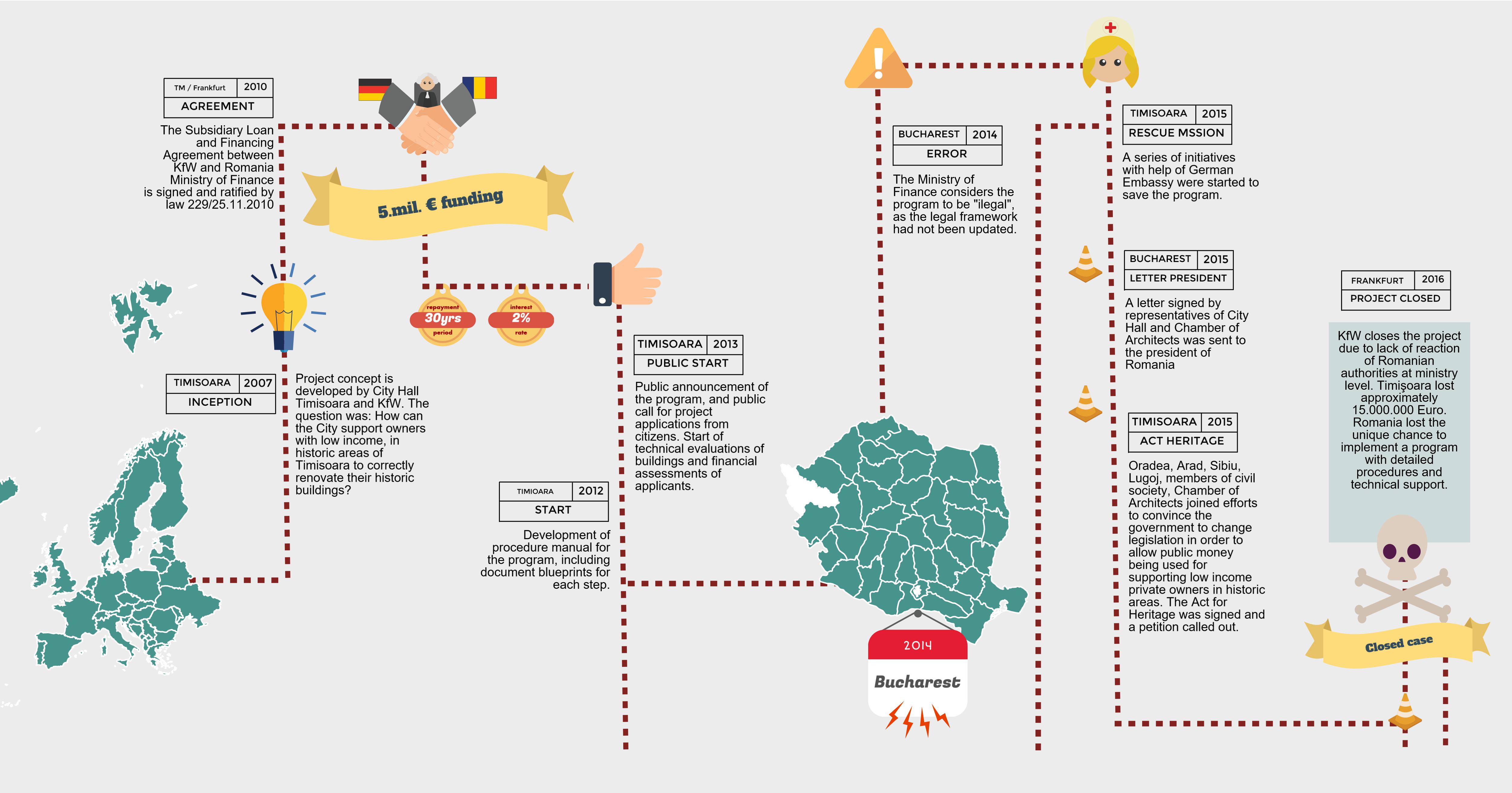Profesia
arhitect
Co-autori
Paul Buchert, Lavinia Popa
Colaboratori (membri ai echipei):
Pataki Farkas, Cristina Ramneantu
Location:
Timisoara
Text de prezentare a lucrării:
Residential buildings registered as monuments form a major part of city centers in Romania. Till this day there is no solution that ensures a sustainable modernization and protection of this heritage. Privatization started after 1989 conducted to a fragmentation of property and formed large condominiums with up to 120 owners in Timisoara. Local authorities have understood the priority of protecting historic city centers and revitalize them and have searched for solutions. On a national level there were no programs set up for encouraging investment in privately owned heritage.
The Solution:
City Hall of Timişoara has set up together with German partners a program for financing low level income citizens, owning apartments in historic buildings and ensuring the quality of the works through technical assistance. The program called “Rehabilitation Program of Historic Monuments in the Historic City Quarters Iosefin, Fabric and Cetate of Timisoara, Romania” was set up together with GIZ and with support of the German Ministry of Cooperation. Financing was provided through the KfW Bank, in total 5 Mil. euros, with a reimbursement period of 30 years and 2% interest rate. Out of this fond private owners should have been supported up to 250.000 per building. The reimbursement period for owners was 10 years. This meant a revolving fund had to be set up and in total, over 30 years the city could have facilitated up to 15 Mil. euros investment in local heritage.
Results:
During implementation between 2012-2015 a series of problems emerged, regarding the national legal framework. The Romanian Ministry of Finance, who signed the agreement with KfW in 2010, did not allow public money to be spent in order to support private owners and also did not allow local authorities to use the instrument of revolving funds. Even if heritage is widely considered a question of national interest, no major political interest was established for operating the necessary changes of law. As a result, only money dedicated to publicly owned buildings could be spent. Timişoara lost the financing and Romania lost the chance to establish a new model for the relation between State, private owners and heritage.





































































